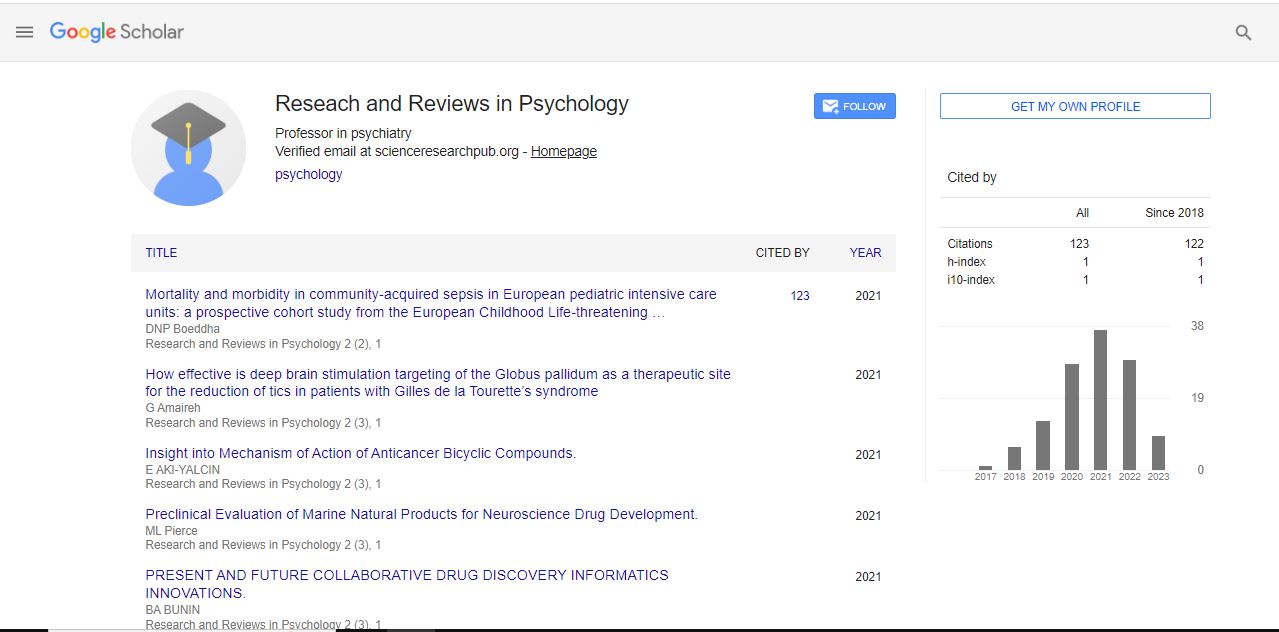Short Communication, Res Rev Phys Vol: 2 Issue: 4
Outcomes in Schizophrenia Systematic Reviews
The aim is to present recent systematic reviews related to outcome of schizophrenia. Included reviews focus different aspects of schizophrenia: proportion of recovery, family history of psychosis as a predictor of functional outcome, and duration of untreated psychosis (DUP) as a predictor of outcome. A comprehensive search strategy was used to identify potential studies, and data were extracted for those original articles that met inclusion criteria. A follow-up of at least two years was required. As a result, the median proportion who met our recovery criteria was 13.5%. Recovery was defined as improvements in both clinical and social domains, and evidence that improvement in at least one of these two domains had persisted for at least two years. Studies from sites in countries with poorer economic status had higher recovery proportions. DUP correlated statistically significantly with poor general symptomatic outcome, more severe positive and negative symptoms, lesser likelihood of remission and poor social functioning and global outcome (correlations 0.13-0.18). Long DUP was not associated with employment, quality of life or hospital treatment. The presence of family history of psychosis was associated with poor occupational (r=0.17) and global (r=0.13) outcome. As a conclusion, based on the best available data, approximately one in seven individuals with schizophrenia met our criteria for recovery. Despite major changes in treatment options in recent decades, the proportion of recovered cases has not increased. Both family history of psychosis and longer duration of untreated psychosis associate moderately with poorer long-term outcome in schizophrenia.
Abstract
The aim is to present recent systematic reviews related to outcome of schizophrenia. Included reviews focus different aspects of schizophrenia: proportion of recovery, family history of psychosis as a predictor of functional outcome, and duration of untreated psychosis (DUP) as a predictor of outcome. A comprehensive search strategy was used to identify potential studies, and data were extracted for those original articles that met inclusion criteria. A follow-up of at least two years was required. As a result, the median proportion who met our recovery criteria was 13.5%. Recovery was defined as improvements in both clinical and social domains, and evidence that improvement in at least one of these two domains had persisted for at least two years. Studies from sites in countries with poorer economic status had higher recovery proportions. DUP correlated statistically significantly with poor general symptomatic outcome, more severe positive and negative symptoms, lesser likelihood of remission and poor social functioning and global outcome (correlations 0.13-0.18). Long DUP was not associated with employment, quality of life or hospital treatment. The presence of family history of psychosis was associated with poor occupational (r=0.17) and global (r=0.13) outcome. As a conclusion, based on the best available data, approximately one in seven individuals with schizophrenia met our criteria for recovery. Despite major changes in treatment options in recent decades, the proportion of recovered cases has not increased. Both family history of psychosis and longer duration of untreated psychosis associate moderately with poorer long-term outcome in schizophrenia.
 Spanish
Spanish  Chinese
Chinese  Russian
Russian  German
German  French
French  Japanese
Japanese  Portuguese
Portuguese  Hindi
Hindi 